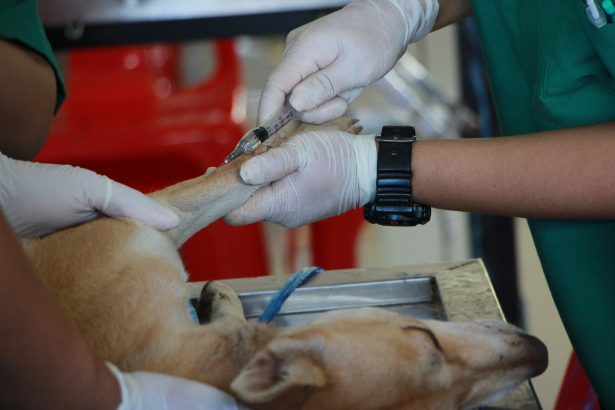As a pet owner, the thought of cancer affecting your furry friend is a scary one. Unfortunately, Bernese Mountain Dogs are prone to certain types of cancer that can be devastating for both the dog and their owners. In this guide, we will explore the common types of cancer that affect Bernese Mountain Dogs and provide helpful tips on how to identify and manage these diseases. By being informed and proactive, you can help ensure that your beloved Berner lives a healthy and happy life.
Exploring the Common Types of Cancer in Bernese Mountain Dogs: A Guide for Pet Owners
Bernese Mountain Dogs are a popular breed known for their loyalty, intelligence, and gentle nature. Unfortunately, like all dogs, Bernese Mountain Dogs can develop cancer. Cancer is a leading cause of death in dogs, and it’s important for pet owners to be aware of the common types of cancer that can affect their furry friends. In this guide, we’ll explore the most common types of cancer in Bernese Mountain Dogs, their symptoms, and treatment options.
1. Mast Cell Tumors
Mast cell tumors are the most common type of skin cancer in dogs, and they are particularly common in Bernese Mountain Dogs. These tumors can appear as lumps or bumps on the skin and can be either benign or malignant. Malignant tumors can spread to other parts of the body and can be life-threatening. Symptoms of mast cell tumors include lumps or bumps on the skin, vomiting, diarrhea, loss of appetite, and lethargy. Treatment options include surgery to remove the tumor, chemotherapy, and radiation therapy.
2. Osteosarcoma
Osteosarcoma is a type of bone cancer that is common in large dog breeds, including Bernese Mountain Dogs. This cancer typically affects the long bones of the legs, and symptoms include lameness, swelling, and pain in the affected area. Treatment options include amputation of the affected limb, chemotherapy, and radiation therapy.
.png)
3. Hemangiosarcoma
Hemangiosarcoma is a type of cancer that affects the blood vessels and is common in Bernese Mountain Dogs. This cancer can affect any organ in the body, but it is most commonly found in the spleen, liver, and heart. Symptoms may include weakness, lethargy, loss of appetite, and abdominal swelling. Unfortunately, hemangiosarcoma is often not diagnosed until it has spread to other parts of the body, making it difficult to treat. Treatment options include surgery to remove the affected organ, chemotherapy, and radiation therapy.
4. Lymphoma
Lymphoma is a type of cancer that affects the lymphatic system and is common in dogs. This cancer can affect any part of the body and can cause symptoms such as swelling of the lymph nodes, lethargy, loss of appetite, and weight loss. Treatment options for lymphoma include chemotherapy, radiation therapy, and immunotherapy.
5. Transitional Cell Carcinoma
Transitional cell carcinoma is a type of cancer that affects the bladder and urinary tract. This cancer is common in older dogs, and symptoms may include frequent urination, difficulty urinating, blood in the urine, and urinary incontinence. Treatment options include surgery to remove the affected area, chemotherapy, radiation therapy, and immunotherapy.
Overall, cancer is a serious and often life-threatening disease that can affect Bernese Mountain Dogs. It’s important for pet owners to be aware of the common types of cancer that can affect their furry friends and to seek veterinary care if they notice any symptoms. While cancer can be difficult to treat, early detection and treatment can improve the chances of a positive outcome. With proper care and attention, Bernese Mountain Dogs can live long, happy, and healthy lives.
In conclusion, Bernese Mountain Dogs are prone to several types of cancer, and as a pet owner, it’s crucial to be aware of the common symptoms and take proactive measures to prevent and treat the disease. Regular veterinary check-ups, a healthy diet, and plenty of exercise can go a long way in maintaining the overall well-being of your furry friend. Remember, early detection is key to a successful cancer treatment, so don’t hesitate to contact your veterinarian if you notice any unusual signs or symptoms in your Bernese Mountain Dog. With proper care and attention, your furry companion can live a happy and healthy life.


.png)
.png)
.png)
.jpg)


